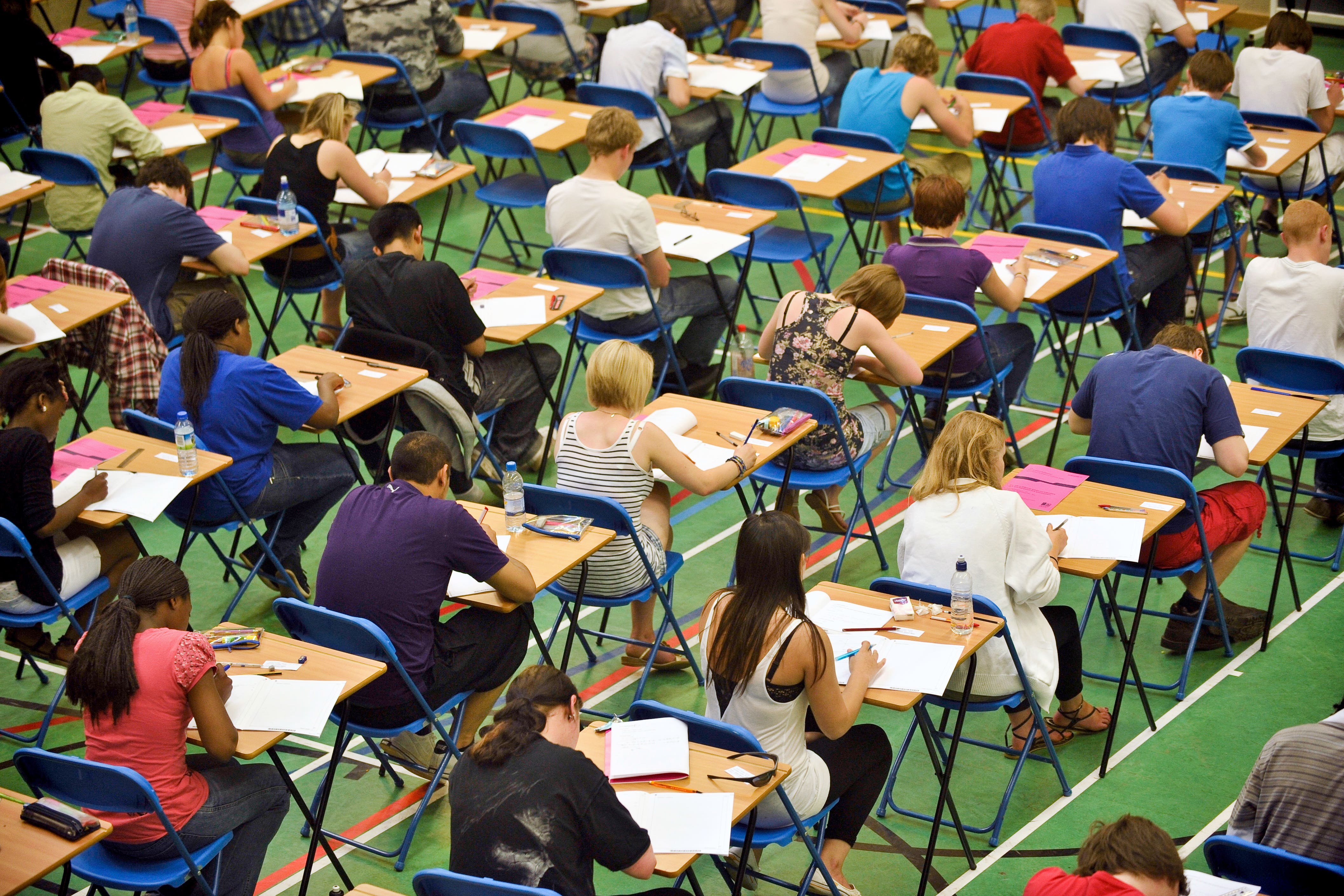A-level results: Boys widen gap over girls for A* grades in post-Covid exam drive
Girls continue to outperform boys across A-level results – but they picked up fewer top grades

Boys pulled further ahead of girls in securing top A* grades in their A-levels this year, national figures show.
Hundreds of thousands of students across England, Wales and Northern Ireland received their exam results on A-level results day on Thursday – with grades expected to be returned to 2019 levels.
Some 9.5 per cent of boys picked up an A*, compared to 9.1 per cent of girls. The gap has grown from a 0.3 percentage point margin last year.
This year’s results show girls continued to outperform boys across all grades – and when both A* and A grades are totalled up.
Although boys have outperformed girls in terms of A* grades from 2012 to 2019, girls surpassed boys between 2020 and 2022 – during the Covid-19 pandemic.
Professor Alan Smithers, director of the Centre for Education and Employment Research at Buckingham University, told The Independent girls overtook boys during the pandemic because exams were temporarily paused and girls tend to do better in teacher assessments than tests.
“Boys tend to show up better in exams than in teacher assessment. The girls were ahead during the emergency of the pandemic, when exams were halted,” he said.
“That was the reason why the grades went up generally across the subjects and in the direction of girls.”
Boys predominate in further maths, maths, languages, physics and economics and they award high percentages of top grades because it is easier to quantify top results as you either put the right or the wrong answer.
Professor Smithers said one reason boys get a marginally higher proportion of A* grades than their female counterparts is that different subjects reward a differing percentage of top grades.
“Boys predominate in further maths, maths, languages, physics and economics and they award high percentages of top grades because it is easier to quantify top results as you either put the right or the wrong answer,” he said.
“In more subjective subjects – which girls are more likely to take – the results tend to bunch more to the middle because they are more a matter of right judgement.”
He noted that while boys have traditionally been ahead in terms of A*s, girls are ahead at all other passing grades for A-levels.
“Overall girls do better at A-levels than boys and the same with GCSEs – this has been the case since the 1980s,” Professor Smithers said.
“I think they apply themselves more consistently and conscientiously and they are more aware of the opportunities that doing well in education open up. Boys tend to be more relaxed about it and rely on the big bang of exams coming at the end but don’t show up that well in classes and haven’t always done the hard graft.”
Some 28 per cent of UK entries were awarded an A or A* grade this year – a rise of 0.6 percentage points from last year.
This was also higher than in 2019 – the last year that summer exams were taken before the pandemic – when 25 per cent of entries were awarded A or A* grades.
Additional reporting from wires
Join our commenting forum
Join thought-provoking conversations, follow other Independent readers and see their replies
Comments
Bookmark popover
Removed from bookmarks